Arts & Entertainment
Part 2: James Dean: Remembering the Screen Legend and the Path He Blazed from Broadway and TV to Film
“Dream what you want to dream, go where you want to go, be what you want to be,” James Dean has been quoted saying. “Because you have only one life and one chance to do all the things you want to do.” He did just that, but it seemed like it was in an instant.
Sixty years after his death on September 30, 1955, the fascination with Dean has never ended. On February 8, the forever young Dean would have turned 84. There’ve been books, films, documentaries, and speculation on the What Ifs had his career gone on.”
When Dean signed for East of Eden, he packed all his belongings in two paper bags and boarded a TWA plane for Hollywood. According actress Liz Sheridan [known for her role on Seinfeld as Jerry’s mother], one of Dean’s longtime steadies, “Jimmy signed for $10,000. His life was about to change. He’d no longer be bouncing from apartment to apartment, borrowing money, and sponging off friends.”
Waiting for production to start, Dean, an insomniac, spent nights on the Sunset Strip, often with his bongo drums. With his first Eden paycheck, he decided it was time to really spin his wheels. He bought a Triumph Tiger motorcycle and, later, a 1953 red MG TD. He took glee in racing the cycle around Warner’s Burbank lot – and the cycle and sports car on the twisting curves around Laurel Canyon.
Dean’s rocky road through Hollywood was tainted with difficult romances. First, he fell head-over-heels for Italian actress Pier Angeli, “so awestruck,” one related, “he couldn’t get the nerve to ask for her phone number. His agent got it.” Their torrid relationship was not to be. The night they were set to elope, Angeli broke it off due to family pressure over gossip column mongering and the fact that Dean wasn’t Catholic. Dean was devastated. Angeli, in November 1954 married singer Vic Damone, a Catholic. Dean, sobbing, went to the church, waited across the street, and as the couple exited, revved his motorcycle and sped off. [The marriage lasted four years before the good Catholics divorced. Eventually both remarried.]
Dean had tweaked his Eden character of Cal to the point of living him in his daily life. Dick Van Patten (TV’s Eight Is Enough, other numerous roles) stated, “Jimmy was always searching for what was real.” Once, when asked how he’d play a bullfighter, Dean grabbed a bullfighter’s cape and a set of horns he carried about, ran into traffic, and strutted his stuff against the Yellow cabs. Landau observed, “Jimmy’s the unexpected personified – always reaching out, searching. He goes directly to the heart of the matter.”
“In East of Eden and, especially in Rebel without a Cause,” says cast mate Lois Smith, “what Jimmy did turned out to be what people wanted at that moment. For young people, he was someone recognizable.”
Rebel without a Cause director Nicholas Ray, as charismatic, temperamental, and unpredictable as Dean, and the actor were a match made in heaven.
Dean was signed to his next picture with top billing. Warners purchased rights to psychiatrist Robert M. Lindner’s 1944 book, Rebel without a Cause: The Hypnoanalysis of a Criminal Psychopath, a groundbreaking attempt “to portray the moral decay of American youth, critique parental style, and explore the differences and conflicts between generations.” A full script was never done and the project was shelved.
The film story was conceived by Ray. It and Irving Shulman’s screenplay bore no resemblance to the book. Rather it “offered social commentary and an alternative to previous films depicting delinquents in urban slum environments.” It became a story about emotionally confused suburban, middle-class teens on a journey through a turbulent universe of violence and delinquency.”
Martin Landau concurred. “In Rebel without a Cause, Jimmy represented that moment in time. His vulnerability struck a chord with young audiences. Where grown ups had set styles, Jimmy stepped in. He represented teens unhappy with their lot and grappling with issues of the day.”
Co-starred with Dean as Jim, betrayed and anguished by his bickering parents, there was old friend Natalie Wood as Judy, convinced her father no longer loves her and, to get his attention, she must dress in racy clothes [only to be called a tramp]; and Sal Mineo, as Plato, whose father abandoned the family when he was a tot leaving him to deal with all sorts of emotional fodder. Veteran actor Jim Backus and actress Ann Doran are Jim’s parents. Dennis Hopper, Nick Adams, and Corey Allen were featured.
When production began, the Warner chief considered Rebel a B-movie project. It was being shot in B&W; then, realizing the hot property Dean was becoming, decided on Technicolor. Sequences already shot were reshot.
The shoot had all the fodder of a Peyton Place-like novel. There’d already been scandal in the Ray household when he discovered his 13-year-old son sleeping with his wife [actress Gloria Grahme]. However, Ray wasn’t above scandalous behavior. In 1954, when he was 43 and she was 16, he began an affair with Wood, who, during production, seemed to be having an affair with Dean, but was actually sleeping with Hopper. When Ray found out, he gave nearly all of Hopper’s lines to another actor. [They reconciled later, with Hopper helping Ray, who’d hit hard times, get work as a teacher.]
Ray’s “truest love affair, although not a carnal one” was Dean, who totally seduced the director. Their courtship wasn’t easy. “We sniffed each other out, like a couple of Siamese cats,” recalled Ray. “And the tension never dissipated.”
There was lots of tension. Dean delayed production holed up in his trailer “preparing. I want what I do to be real.” Ray allowed indulgences other directors wouldn’t have allowed [such as Dean’s insistence on using real switchblades in a fight scene, which resulted in injury. Still, he refused to switch to props].
Then, there was the matter of Dean and Mineo. Mineo’s Plato not only looks up to Dean/Jim as a father figure, but seems to have a made crush on him. It’s amazing how one quite intimate scene of the duo made it past censors. [The two were rumored to later have a brief affair.] Another scene, “thought to be too emotionally provocative,” was cut.
The sequence of Dean/Jim returning home to find Backus/his father on the floor in an apron picking up the aftermath of a dropped tray he was taking to his sick wife is one of the film’s pivotal moments. Dean, in a voice an octave lower, at first tries to bond with him, then reprimands his weakness.
Backus and Dean, a fan of his work in the Mr. Magoo cartoons, hit it off. “But,” said Backus, “you had to steel yourself for Jimmy’s intensity. In that moment when he pulled me up off the floor by my clothing, I could feel his disdain. He was so in character that I was happy he didn’t have his hands around my neck.”
[The film was banned in New Zealand for fear “it would incite teenage delinquency”; but after protests, released a year later with scenes cut. In Britain, the film received an X-rating even with scenes cut. In 1990, Rebel Without a Cause was added to Library of Congress’s National Film Registry for being “culturally, historically, and aesthetically significant.”
Wood and Mineo were Oscar-nominated in the Supporting category; and Ray was nominated for his screenplay, though Stewart Stern received screen credit. The film was BAFTA-nominated for Best Picture.
Fans will enjoy Live Fast, Die Young: The Wild Ride of Making Rebel without a Cause by Lawrence Frascella and Al Weisel.]
Dean on his next film, Giant, under acclaimed director George Stevens, continued to be difficult. He was most often not on set in Texas when needed, and could be found off with ranchers, learning rope tricks.
To get the performance he wanted, Stevens learned to bait Dean with long conversations on how to do a scene. Dean’s anger resulted in a unique theatricality jumping from the screen. The director noticed that after scenes were shot, Dean stayed in the moment, sometimes moody or sulking, and would do the unexpected. He told cinematographer William Mellor, “Stay on him! Keep the camera rolling.”
Dean didn’t mix with the company, with the exception of the former child star, singer and comic Jane Withers, who had a supporting role, and Taylor. Withers and he became such tight friends “that I was doing his laundry and cooking for him.” Dean and Taylor became inseparable, so much so that cast and crew assumed they were having an affair.
Acting totally oblivious to Hudson’s stardom, he showed no awe and acted quite diffidently toward him. Eventually they bonded – sort of. Hudson admired some of Dean’s acting instincts; and laughed at his shenanigans – however, became wary of him when he saw Dean doing bits to upstage him.
Giant author Edna Ferber, writing in her autobiography A King of Magic, noted that Dean “was spectacularly talented, handsome in a fragile sort of way, and absolutely outrageous. He was an original. Impish, compelling, magnetic, utterly winning one moment, obnoxious the next. Definitely gifted.”
Warners barred him from racing during production. In late September 1955, on the completion of his last scene, Dean used his advance to purchase his “dream trophy of success,” a silver gray Porsche Spyder with red bucket seats and red tailpipes. He nicknamed it “Little Bastard”—a name a fellow racecar driver gave him.
On September 17, Dean did a public service announcement for the Highway Safety Committee. In his Giant costume and playing with a lariat, “Dean … a racing man himself – a real one, not a crazy one” stated, “Take it easy driving. The life you save might be mine … I took a lot of unnecessary chances on the highway, then I started racing. Now, when I drive on the highway I’m extra cautious. I don’t have the urge to speed. People say racing is dangerous, but I’d take my chances any day on the track than on a highway.”
Six days later, outside L.A. restaurant Villa Capri, Dean met visiting Alec Guinness and invited him to see his car, even go for a spin. Sir Alec, it’s reported, found the car “sinister” and told Dean, “If you get in that car, you will be found dead this time next week.”
In late September, with Giant in post-production, Dean had cause for celebration. With two films still in the can, his “overnight” orbit of popularity resulting from Eden, the one film in release; the pandemonium greeting his Jim Stark with its hetro- and homoerotic aspects at Rebel previews; and his Jett Rink in Giant, segueing from ranch hand to oil tycoon, Warners considered him their golden boy. He signed a 10-picture contract at $100,000 a film, making him Hollywood’s first star to sign a million dollar deal.
On Friday, September 30, Dean and his mechanic Rolf Wutherich had lunch with Dean’s father, then set off in a new Ford Country Squire station wagon for a race in Salinas where he was to drive his Porsche. They mounted it on a flat-bed trailer towed by a stuntman friend who followed them. Just outside Bakersfield, the drivers were ticketed for speeding.
They turned off the main highway onto Route 166/33, a popular short-cut for racers heading to Salinas, to avoid Bakersfield’s slow 25 mph downtown district. At then Route 466/33, they stopped for refreshments and met up with fellow racers and made plans for dinner that night.
Around 5:45 P.M. on a particularly long, flat section of highway, the mechanic allegedly urged Dean “to see what the Porsche can do.” It was unloaded. They sped away, leaving the station wagon way behind. At the junction of Route 466 and 41, a 1950 Ford driven at high speed by 23-year-old Donald Turnupseed was headed east on 466. As he made a left turn onto 41 to head north, it’s said he crossed the center line of the two-lane highway.
Dean, driving at a reported 85 mph, spotted him and tried a side-stepping racing maneuver. With insufficient time and space, the cars collided. The Spyder was said to have smashed to the ground in two or three cartwheels – landing in a gully off the highway shoulder where Wutherich was thrown out. Among the passersby stopping to help was a nurse who administered to Dean. She reported he had a weak pulse, and then was gone.
[At the coroner’s inquest, Turnupseed, who miraculously walked away from the crash, told the jury he didn’t see the low-profile Porsche because of the sun shining so intensely on him and reflecting off the car.]
Stevens, Taylor, Hudson, and Withers were at Warners viewing Giant rushes when a production assistant burst in telling Stevens there was an emergency call. When the director returned with the news, the room fell silent, except for a scream from Withers. Taylor and Hudson were incredulous. When Hudson began tearing up, he slowly moved toward the door, exited, and walked aimlessly around the lot.
James Dean became the first actor to be Oscar-nominated posthumously. He received Best Actor nods for East of Eden and Giant.
Commemorating James Dean’s career is a limited, numbered Blu-ray six-disc set, James Dean: Ultimate Collector’s Edition [Warner Home Video; SRP $100] with collectibles that include 48-page book, photos, posters, clips from Dean’s TV work, screen tests, three documentaries with remembrances and anecdotes from friends and co-stars.
Ellis Nassour is an Ole Miss alum and noted arts journalist and author who recently donated an ever-growing exhibition of performing arts history to the University of Mississippi. He is the author of the best-selling Patsy Cline biography, Honky Tonk Angel, as well as the hit musical revue, Always, Patsy Cline.


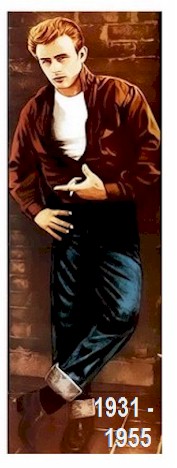
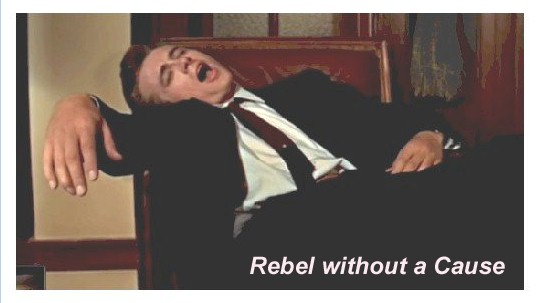
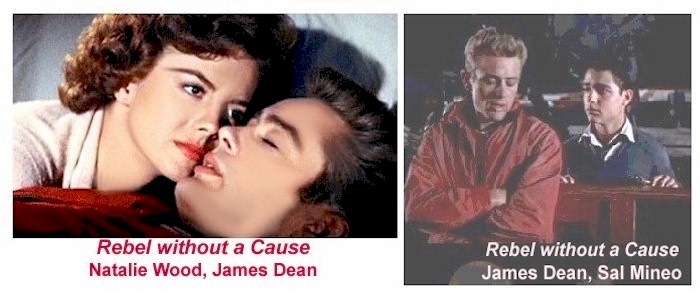
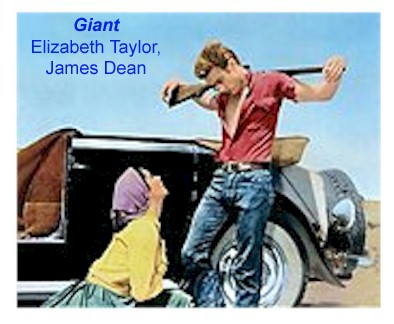
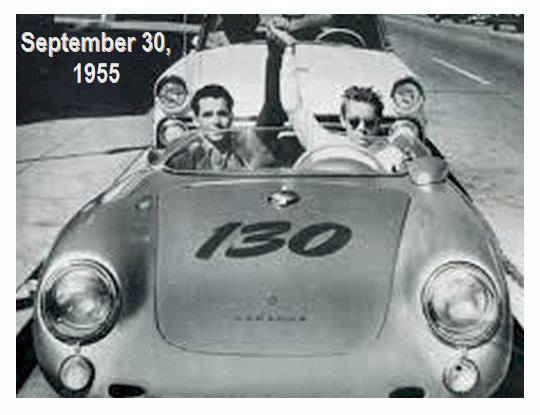





























Mark Taliana
October 12, 2015 at 5:03 am
You got so many facts wrong here, I don’t know where to start…
Ellis Nassour
October 13, 2015 at 12:34 am
The article was well-researched and with 12 interviews. So if you want to criticize, you should state what you find incorrect. Did you spend six months interviewing, researching? Always easy to criticize, Mark, but did you do the work?
Ellis Nassour
October 13, 2015 at 12:36 am
Well, if you want to criticize my work, Mark, you should begin.
Don’t take the easy way out…